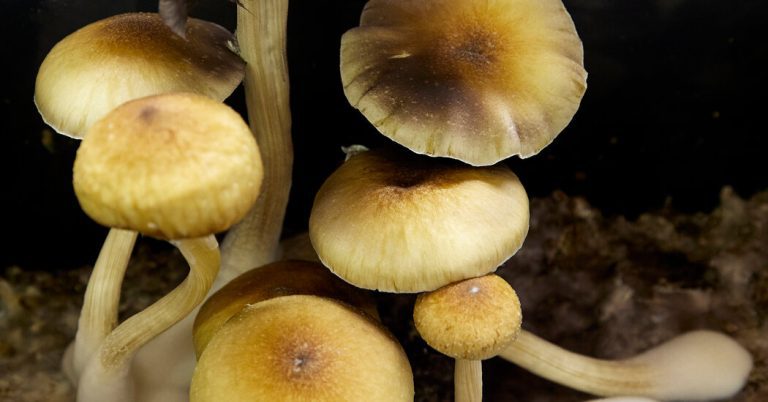Seizures of psychedelic mushrooms across the country by law enforcement officials have increased significantly in recent years as attitudes about their use have become more permissive, according to a government-sponsored study released Tuesday.
The researchers found that law enforcement authorities seized 844 kilograms of mushrooms containing psilocybin in 2022, a 273 percent increase from 2017. Psilocybin is the psychoactive ingredient in mushrooms commonly known as magic mushrooms.
Officials with the National Institute on Drug Abuse, which commissioned the study, said the increase in magic mushroom seizures reflected growing drug use, rather than a sign that drug enforcement officials were pursuing the substances more aggressively than before.
The market for magic mushrooms, which are illegal under federal law, has grown in recent years as several clinical studies have shown they can be effective as treatments for depression and other serious conditions. But many medical professionals say they worry that the hype surrounding psychedelics has outpaced the science.
Dr. Nora Volkow, director of NIDA, said preliminary clinical studies had shown that psychedelics may one day become an important tool in the treatment of psychiatric disorders, including addiction to other drugs. But he said he was concerned that many people were self-medicating with psychedelics.
“Psychedelic drugs have been promoted as a potential treatment for many health conditions without adequate research to support these claims,” said Dr. Volkow. “There are people who are very desperate for mental health care and there are businesses who are very eager to make money by marketing substances as treatments or cures.”
In 2018, the Food and Drug Administration gave psilocybin special designation to speed up research into its effectiveness as a treatment for depression, which could lead to approval for clinical use.
The promising clinical studies have sparked a movement to legalize psychedelics in some states and cities. In 2020, Oregon voters approved a measure legalizing the therapeutic use of psychedelic mushrooms, and Colorado voters supported a similar one two years later. Several cities have made psychedelics a low priority for law enforcement, often citing their therapeutic potential.
The changing legal landscape, along with media coverage of clinical studies, has fueled demand for psychedelic therapy, experts say.
“All the positive coverage of psychedelics may be introducing the idea of their use to a new population that has never considered using them before,” said Joseph J. Palamar, a professor of public health at New York University and lead researcher on the study. increasing seizures of magic mushrooms.
Dr. Joshua S. Siegel, a psychiatrist at Washington University in St. Louis, said patients with serious mental health conditions were increasingly seeking guidance from doctors about the value of drugs like magic mushrooms.
While psychedelics are safer than other drugs in terms of their potential for addiction and death, said Dr. Siegel, they can also prove destabilizing, particularly for people with serious mental health conditions.
“People can partially or completely lose touch with reality and behave in irrational and potentially dangerous ways,” he said.
As the nation grapples with an opioid overdose epidemic, experts say psychedelics have become a relatively low priority for federal law enforcement officials. The Biden administration’s most recent report on its drug control strategy, issued in 2022, includes only one reference to psychedelics. There are dozens of reports of opioids.
Psychedelic businesses target people struggling with depression and anxiety and sell products through websites and encrypted messaging platforms. Several advertise on social media, promoting products such as small doses of magic mushrooms in pill form as an alternative to anti-depressants.




